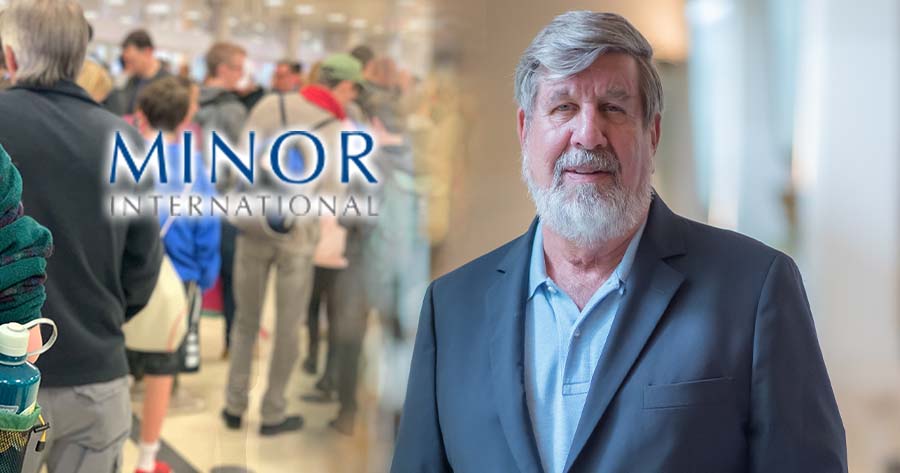William E. Heinecke, Founder and Chairman of Minor International Public Company Limited (SET: MINT) submit a deployment of mandates and measures targeting tourism recovery to the Thai Prime Minister Prayut Chan-o-cha with details as follows;
I would like to express my sincere gratitude for the Government’s recent actions to accelerate the pace of Thai tourism recovery, which is crucial for Thailand’s economic growth. While the goal to welcome over 10 million international tourists in 2022 poses a significant uptick year-on-year, it only amounts to a quarter of the 2019 level, even projection in 2023 of 18 million is only 45% of pre-COVID. Facing sub-par demand, hospitality operators are still forced to draw heavily on their reserves to cope with rising cost inflation of raw materials, wages, energy and fuel prices, pressuring their profitability and cash liquidity.
I, on behalf of every hospitality operator in Thailand, seek your support in implementing improvements to Government regulations that will help Thailand’s hospitality sector survive this difficult environment of depressed demand and rising costs. Proposed measures for your consideration are listed below:
1). Grant temporary government mandates to request all hotels to charge international tourists a flat surcharge of THB 300 per room night to alleviate the burden of soaring operating costs.
2). Allow business operators to pay land and building tax in three installments without interest or penalty fees on late payment.
3). Extend the utilization of tax loss carry forward for hotel operators from five years to ten years.
4). Create a level playing field for Thai hospitality players to compete against better-funded foreign companies like AirBnb and Online Travel Agents (“OTAs”).
AirBnB
- AirBnb’s business model profits from private hosts renting out their homes. As such, hosts should face a limit of two or three rooms to let, not large inventories of 20 – 30+ rooms. AirBnb hosts with substantial rooms should comply with the same health and safety regulations, check-in facility, hospitality standards as well as taxation and VAT registration as hotel operators. Without such oversight and compliance, both the safety of travelers and reputation of Thai hospitality are in jeopardy. Clear limits on private rentals are required.
- AirBnb hosts renting out their residences in Thailand must be Thai nationals, who are subject to compliance and taxation under Thai law. The purpose of this proposal is to prevent foreign money laundering and tax evasion activities as well as to enhance the safety of travelers.
Online Travel Agent (“OTA”)
- OTA’s rate parity agreements should be made illegal, as was done in other developed countries, i.e. France, Italy, Germany, Belgium and Austria. Rate parity agreements hinder fair competition and perform a disservice to industry and consumers. Furthermore, the collection of e-service taxes for non-resident OTAs must be enforced as the collected tax can be used to enhance infrastructure and competitiveness of Thailand’s tourism.
5). Maintain the existing regulation on requirement of hotel registration and operating license to hotels and accommodation establishments with over four rooms, as they must comply with all required legislation and strengthen the overall standards of Thai hotel businesses.
6). Heavily promote global communication and public relations campaigns on Thailand’s declaration of Covid-19 as endemic, and the elimination of all pandemic-related travel restrictions, since October 2022.
7). Enhance Thailand’s competitive edge by removing entry hassles and offering short-term visa-free stay in the country to all international visitors and eliminate bottlenecks of delay in immigration arrivals.
8). Extend long-term visa exemption programs and incentives for skilled foreign remote professionals.
9). Allow hotel operators to employ alien workers from Cambodia, Laos, Myanmar and other neighboring countries and approve their work permits beyond the current limitation of domestic workers and construction. Also reduce the minimum monthly wage of alien workers with English-speaking proficiency, particularly from the Philippines and Indonesia, from THB35,000 to THB25,000. These measures will help solve the critical challenge of labor shortage in Thailand’s tourism industry.
Facing prevailing uncertainties in business outlook, government support is needed to shore up the hospitality industry, especially small operators. The above proposals will help revamp outdated regulations, thus accelerating growth of the industry and minimizing the need for Government aid to bail out insolvent businesses in the future.
I am confident that with your leadership, Thailand will remain one of the top tourist destinations, attracting millions of visitors from around the world. It would be my absolute pleasure to assist with or discuss any matters the Government may have. I look forward to supporting your initiatives that will get Thailand’s tourism and business operators back on track as soon as possible.





